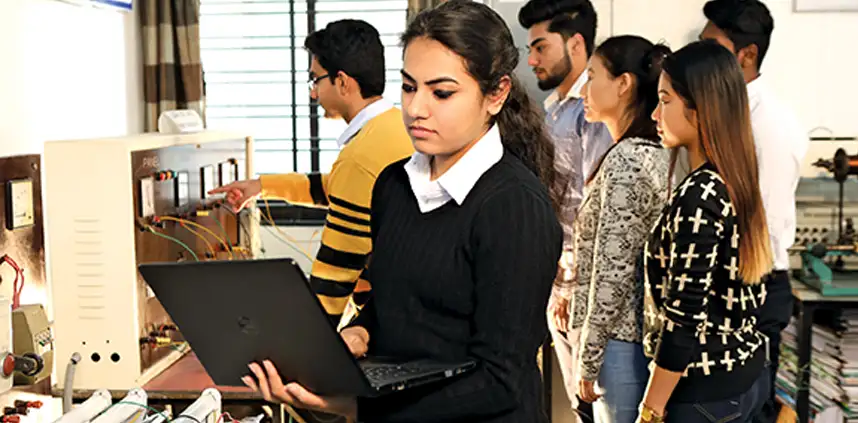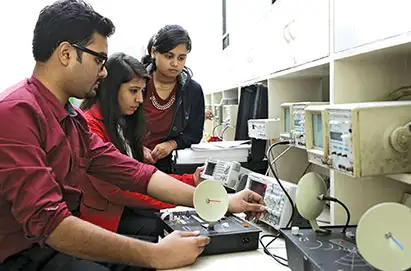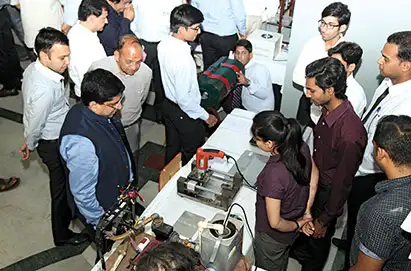Eligibility
Minimum Eligibility Criteria
Pass in 10+2 examination with at least 55% marks in aggregate in 5 subjects and eligibility shall be determined on the basis of percentage of aggregate marks in
i. English, Physics & Mathematics and
ii. One subject out of the given list* as per Note-A and
iii. One subject with the highest score out of the remaining subjects
Selection Criteria
Merit preparation / short listing of candidates shall be on the basis of score in JEE Mains/ SAT / Pearson/ MRNAT /XII Qualifying Examination
Programme Outcomes (PO’s)
PO1: Engineering Knowledge
Apply mathematics, science, and engineering fundamentals to solve complex engineering problems.
PO2: Problem Analysis
Identify, analyze, and review research literature to formulate solutions using principles of mathematics, natural sciences, and engineering sciences.
PO3: Design/Development of Solutions
Design solutions and system components considering public health, safety, cultural, societal, and environmental needs.
PO4: Conduct Investigations of Complex Problems
Use research methods, including experimental design, data analysis, and synthesis, to draw valid conclusions.
PO5: Modern Tool Usage
Apply modern tools, techniques, and IT resources for engineering activities, understanding their limitations.
PO6: The Engineer and Society
Assess societal, health, safety, legal, and cultural responsibilities informed by contextual knowledge.
PO7: Environment and Sustainability
Understand the impact of engineering solutions on society and the environment while recognizing the need for sustainable development.
PO8: Ethics
Commit to ethical principles, professional responsibilities, and norms of engineering practice.
PO9: Individual and Team Work
Work effectively as an individual, team member, or leader in diverse and multidisciplinary settings.
PO10: Communication
Communicate complex engineering activities effectively through reports, documentation, presentations, and clear instructions.
PO11: Project Management and Finance
Apply engineering and management principles to manage projects and function effectively in multidisciplinary environments.
PO12: Life-long Learning
Recognize the need for continuous learning and adapt to technological advancements.
Program Specific Outcomes (PSO’s)
PSO1
Connect learning from Core and Disciplinary/Interdisciplinary elective courses in Electronics and Communication Engineering to assimilate technological advancements in the field for analyzing and designing subsystem processes to solve real-world problems.
PSO2
Acquire hardware and software skills pertinent to research and industry practices in the field of Electronics & Communications while acquiring soft skills like persistence, and proper judgment through projects and industrial interactions.
PSO3
Ability to identify Indigenous processes and components for producing high quality, compact, energy-efficient and eco-friendly solutions at affordable prices for existing and new applications directly and indirectly related to the Electronics & Communication industry.
PSO4
Focus on acquiring the right blend of aptitude and attitude to be the candidate of first choice for placements and higher education or to become a successful Entrepreneur and a worthy global citizen.
.png)




